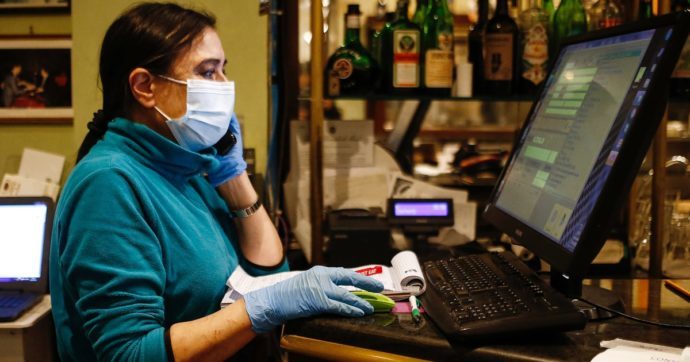A Post-Covid industrial landscape a.k.a ‘Every cloud has a silver lining’… for some?

by Wyn Jones*
There appears to be growing evidence that the post-Covid industrial future will be marked by an extreme segmentation into winners and loser companies. And that the driver of this extreme segmentation appears not to be the “intrinsic nature” of the industries per se (e.g. Well pubs and restaurant sectors are down because of social distancing restrictions), as much as the extent to which different industrial sectors appear to have been able to use the Covid crisis as a “constructive catalyst” for organizational change.
Indeed, very often companies are using the extraordinary conditions of the pandemic to accelerate internal and external strategic initiatives which were either already underway, or at least had already been discerned as necessary and desirable. Thus are/were able to be “jump started” quickly and effectively.
Online delivery’s volume increased by the same amount in 8 weeks as in the previous decade! Quantum leaps have also been seen in areas such as telemedicine, OL working and remote working. But all these sectors had observable upward trends prior to the Covid crisis, and thus we could have predicted such exponential growth?
In a real sense, we may see again (if further evidence was needed?) the significance of the concept of “core competences” (first floated by Prahalad and Hamel, The Core Competence of the Corporation, HBR, May 1990 ) in product/service innovation. (Truly a seminal article). And being able to manage a rapid internal change process with skills honed in good days are seen to become even more valuable when times are tough. One might speculate that trying to re-engineer organizations in crisis, with no previous track record of significant and continuous change and improvement, would be an even more daunting task?
Thus, we should not be surprised that recent research by McKinsey, for example shows the strong getting stronger, and the corollary of “weak” underperforming. In fact, “a dramatic widening of the gap between those at the top and the bottom of the power curve of economic profit.”
Further, these changes are visible both across and between industries. Thus “winner sectors” before Covid e.g., pharma and semiconductors, appear to be racing ahead of the weaker sectors such as banks and utilities. In fact, a wonderfully insightful statistic is that the top 6 most profitable have added $175 billion/annum to their “expected profit pool” while the bottom 6 have lost $373 billion!
So, is this outcome the nature of the sectors themselves? Or the level of innovative strategic thinking and management that has traditionally been “the norm” in different industries?
Perhaps this is a classic “chicken and the egg” problem? Highly motivated and creative types end up in Google or Apple and not in Banking or Utilities? But the message surely is that all industrial sectors now demand similar approaches to change, and conceptual “strategic visions” to underpin and galvanize performance? The days of “sleepy backwaters” are no more?
A few questions for the future and what it may hold, however.
1. Will all dramatic changes in corporate organization and culture “stick”? A military stye crisis mode may well be ideal for radical change(s), but corporate cultures are surely not changed permanently and irrevocably overnight? And are we sure that “older” issues such as “burn out”, concern with “work/life balance” and the social side of work (including picnics and softball teams), are not just “suppressed” somewhat in extraordinary times, but are ready to remerge when “change fatigue” sets in?
An analogy with Mao and the Cultural Revolution comes to mind. What evidence do we have that “institutionalization” of almost continuous, radical organizational change is possible?
2. Can we envisage an environment in which a “futures’’ perspective can be way forward (and way in?) to companies and organizations which are aware that they are in the sub-par group in the winner- loser stakes, but need guidance and the bracing and invigorating therapy that a dash of “futures on the rocks” (pun intended) can/might bring?
*Born in Wales, and educated in the UK and US, Wyn began a career in research and strategy development as a Research Fellow in the Office of Sen. Biil Brock (R-TN) in DC. Back in the UK he worked on research in a wide spectrum of industries thoughout W Europe, and also Iran.. Relocated to Chicago he helped commercialize applications for then new satellite broadband systems. This lead to an MIT start up in Boston, and work on innovative digital imaging products; and he eventually becoming responsible for the company’s overall strategy and global market development. He subsequently returned to consulting – including working with two Dutch based consultancies – and has worked in a very wide range of industries, as well as providing internal innovation training An active Partner in Futurealities/BFN for over 20 years he has contributed to many Futures Workshops around the globe. He has also worked with his FR colleagues on major strategic projects relevant to resilient infrastructure in African mega-cities. He retains a pro-bono advisory link with Kenya via a educational charity based in Nairobi.



